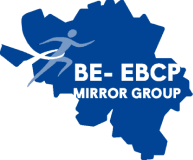Project
GENIAL
Understanding Gene ENvironment Interaction in ALcohol-related hepatocellular carcinoma
1 January 2023 - 31 December 2027
The EU-funded GENIAL project aims to identify genetic and environmental determinants in ALD-HCC onset. Researchers will investigate the mechanism by which specific genetic and environmental factors may promote liver carcinogenesis and how they increase the risk of individuals.
Project description
Alcohol-related hepatocellular carcinoma (ALD-HCC) is, in Europe, the leading cause of liver cancer (2nd most common cause of cancer-related death worldwide, affecting both men and women). ALD-HCC has a median 5-year survival rate of 15%. Yet, the prognosis is driven by the tumour stage, with curative options providing a 5-year survival exceeding 70% for early-stage HCC (<20% of cases). Therefore, interventions aiming to improve prevention and early detection are key. ALD-HCC results from the interplay between environmental determinants and genetic variations.
A comprehensive characterisation of environmental factors (e.g. diet, lifestyle) linked to ALD-HCC is still lacking. We recently performed the 1st genome-wide association study of ALD-HCC and identified predisposing genetic variations. However, their role on alcohol-related liver carcinogenesis needs clarification and the genetic architecture of ALD-HCC remains mostly unknown. GENIAL brings together partners with unique expertise in clinical hepatology, single-cell and spatial multi-omics, artificial intelligence (AI) and communication and dissemination capacities.
Our aim is to ;
- portray genetic and environmental determinants promoting ALD-HCC
- evaluate how they interact at cellular level in human samples and preclinical models to get novel insights into liver carcinogenesis, and identify chemopreventive targets;
- assess how these determinants modulate the ALD-HCC risk in prospective cohorts of patients included in HCC surveillance programs.
Environmental factors will be comprehensively characterised in an ongoing clinical trial designed to evaluate alternative methods for early-stage HCC detection. Finally, AI models, reaching the minimal viable product stage by the end of GENIAL, will be used to integrate genetic and non-genetic information (including digital imaging) to develop novel cost-effective strategies towards prevention and early-stage detection of ALD-HCC in at-risk individuals. This action is part of the Cancer Mission cluster of projects on ‘‘Understanding’.
Funding programme & Type of action
Funding programme : Horizon Europe
Type of action : Research and Innovation Action
Grant agreement number : 101096312
Duration
5 years
